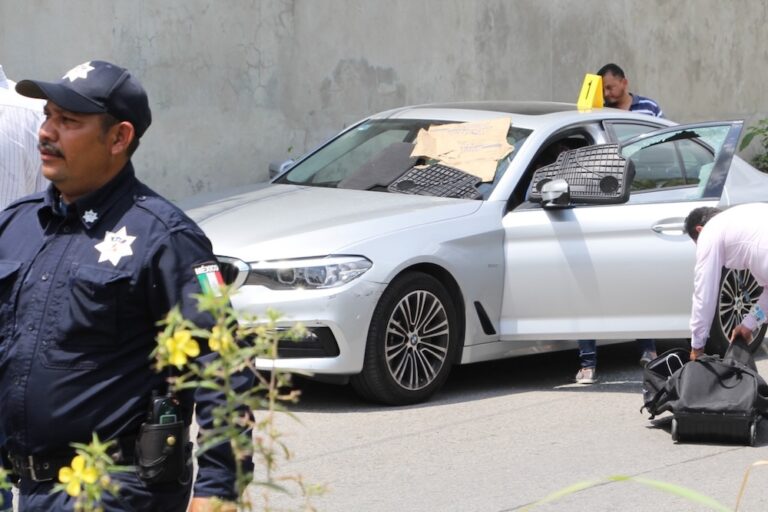(CENCOS/IFEX) – Journalist Silvia Otero, of the national newspaper “El Universal”, received a threatening call from lawyer Omar Cerecedo, who is representing Daniel Pérez Rojas, alias “El Cachetes”. Pérez Rojas is a former military officer and the former head bodyguard of drug cartel leader Osiel Cárdenas. He is also believed to have been one of […]
(CENCOS/IFEX) – Journalist Silvia Otero, of the national newspaper “El Universal”, received a threatening call from lawyer Omar Cerecedo, who is representing Daniel Pérez Rojas, alias “El Cachetes”. Pérez Rojas is a former military officer and the former head bodyguard of drug cartel leader Osiel Cárdenas. He is also believed to have been one of the founders of the “Los Zetas” gang.
On 13 April 2008, Otero published an article reporting the arrest of Pérez Rojas in Guatemala. Subsequently, Cerecedo called her, denying that his client had been arrested and warning the journalist to be “careful and ask God to protect you.”
On 15 April, Guatemalan authorities confirmed that Pérez Rojas was under arrest. Guatemalan Minister of the Interior Vinicio Gómez told the local media outlets that the former gang leader and four other Mexicans captured by anti-narcotics police officers in a region west of the capital, Guatemala City. Gómez said that Pérez Rojas was trying to pass himself off as a Guatemalan, claiming his name was Juan González Díaz.
Otero has filed a complaint with the Attorney General’s Office (Procuraduría General de la República, PGR), denouncing the threat. Assisted by “El Universal”‘s lawyer, the journalist gave a statement to the Special Sub-Prosecutor’s Office on Organised Crime (Subprocuraduría Especializada en Delincuencia Organizada, SIEDO).
According to the Mexican authorities, Pérez Rojas was one of 31 former members of a special air forces division (Grupo Aeromóvil de Fuerzas Especiales, GAFE), who deserted the army to create the armed sector of the Gulf drug cartel. Pérez Rojas rose in the ranks and became one of the people most trusted by cartel leader Osiel Cárdenas, until the latter’s arrest in 2003.
CENCOS is concerned about the threat to freedom of expression in Mexico posed by the government’s passivity in countering the actions of unelected but powerful groups, such as the cartels, which has made Mexico one of the most dangerous countries in the Americas to practice journalism.
CENCOS calls on the authorities to launch an extensive investigation of the incident and ensure that Otero is protected from any reprisals from individuals linked to organized crime.


